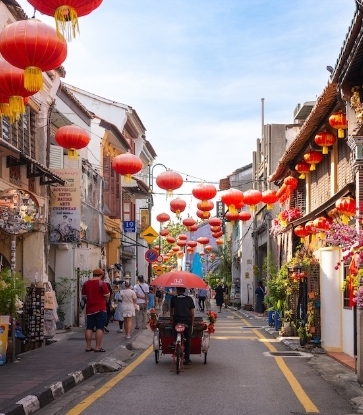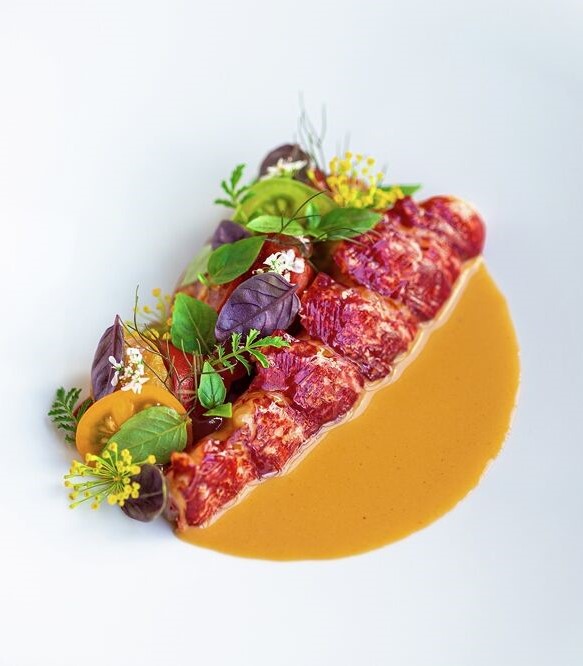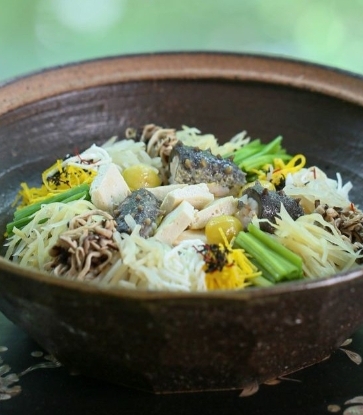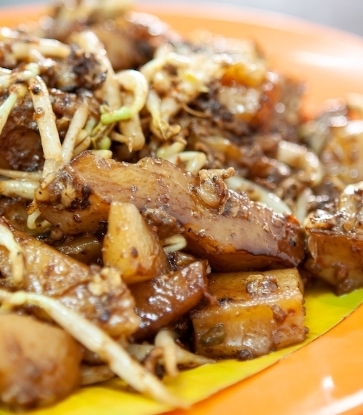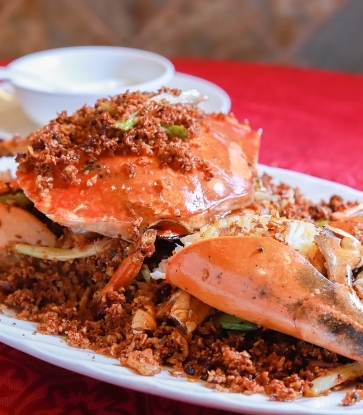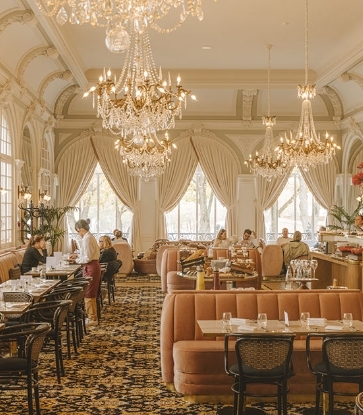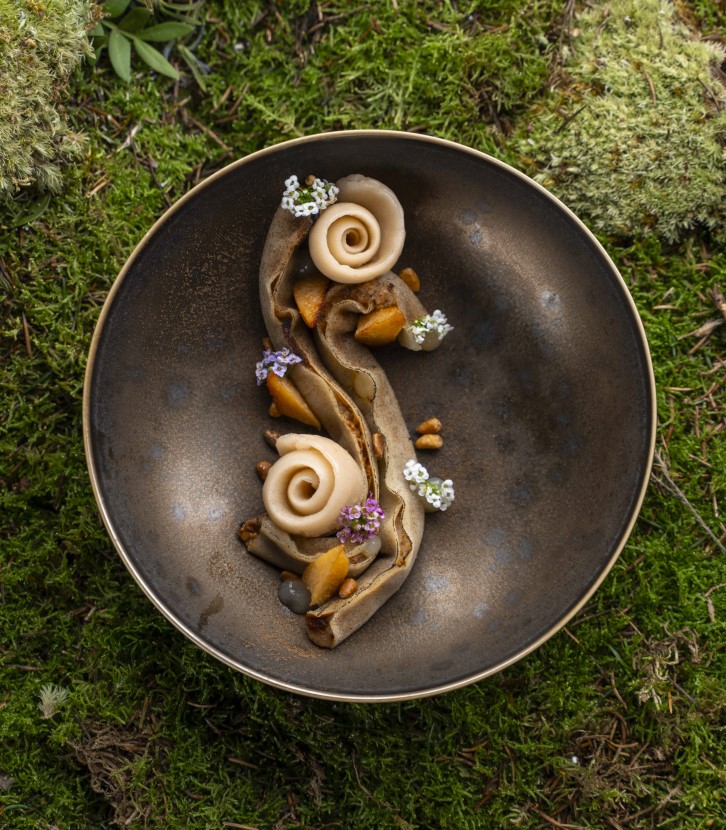The MICHELIN Guide inspectors have praised Modern Australian barbecue joint Burnt Ends as a “carnivorous paradise” and given it a star two years in a row for the sizzling cuts of meat and seafood that come out of its hulking dual-cavity ovens.
But few diners know that between lunch and dinner meal services, when the ovens are at rest, chef-owner Dave Pynt and the rest of his kitchen team tuck into vegetarian and vegan family meals at least twice a week.
Besides the health benefits for his staff, Pynt says the restaurant's weekly Vegetarian Wednesdays and Vegan Fridays staff meals help to "push the cooks creatively and show our staff that vegetables can be delicious too,” he revealed to raised eyebrows among the audience of more than 100 Singapore-based chefs, restaurateurs and hoteliers in the food and beverage industry at the MICHELIN Guide Singapore Trade Seminar 2019 on 23 October.
Pynt spoke as a guest panelist of the invite-only seminar, now in its fourth year. The theme of this year's seminar held at the Capella Hotel Singapore was “Kitchens of Progression” and the 90-minute-long discussion addressed the global trend of sustainability and the shift towards sustainable dining and culinary practices.
Besides Pynt, the panellists included Nicolas Achard, Managing director of Michelin Food and Beverage Asia; Emmanuel Stroobant, head chef and owner of two-MICHELIN-starred Saint Pierre; Kim Stengert, Chief of Strategic Communication and External Relations, WWF Singapore; Andrew Tjioe, President Advisor of the Restaurant Association of Singapore, and Jimmy Ophorst, head chef of one-starred PRU in Phuket. Debbie Yong, Editorial Director of the MICHELIN Guide Asia, moderated the panel discussion.

MICHELIN's Commitment to Sustainability
Managing Director of Michelin Food and Beverage Asia Nicolas Achard kicked off the discussion by explaining why the theme of "Kitchens of Progressions" was chosen for this year. While sustainability is not one of MICHELIN Guide inspectors' five criteria for their assessment of restaurants, he emphasised, it is a core pillar of the Michelin Group. The company has launched several initiatives to limit the environmental impacts of its tyre-producing operations, and recognises that it is an increasingly important movement in the F&B industry, he said.
The trade seminar was launched in 2016 with the debut of the MICHELIN Guide Singapore to allow the F&B industry to have a better understanding of how the inspection process works, MICHELIN Guide Asia Editorial Director Debbie Yong shared. With the maturation of the guide in Singapore, the trade seminar has similarly evolved over the years, and it hopes to broaden the conversation by exploring ongoing trends in the industry and giving a platform to industry players to share how they have converged these trends with meeting MICHELIN’s five criteria for assessment, Yong added.

Sustainability in Action
The chefs on the panel took turns to share the sustainable practices they have in their restaurants, from embracing trends such as locavorism and farm-to-table dining to utilising every part of the ingredient.
Dutch chef Jimmy Ophorst, who flew in for the seminar from the Thai island of Phuket, where he runs one-MICHELIN-starred restaurant PRU, shared two key ways in which the restaurant tries to be sustainable. It sources its 100 per cent of its ingredients locally, either from farmers from specific regions around Thailand or from Pru Jampa, the restaurant's own farm a 20-minute drive from the restaurant, where the team grows herbs, vegetables and even rears free-range chicken and ducks on the land.
The environmental impact of wasteful practices can be acutely felt on a small island like Phuket, Ophorst shared. To address the issue, restaurant and hotel operators on the island formed the Phuket Hotels Association last year to fight for a better island and a better life on the island, he said. The association's members pledged to remove the use of plastic bottles and straws in their hotels by the end of this year. "If you don't comply, you get kicked out of the group," Ophorst said. "You could say that's a positive form of peer pressure.”

Sustainability and Consistency
The panel then raised the issue of how restaurateurs can balance environmental sustainability with financial sustainability. Kim Stengert, the chief of Strategic Communication and External Relations at WWF Singapore, shared more on how the global NGO partners with restaurants and hoteliers to implement processes — from the procurement of sustainably sourced ingredients to reducing their use of plastics and palm oil — to reduce their impact on the environment.
Chef of two-MICHELIN-starred fine-dining restaurant Saint Pierre, Emmanuel Stroobant, acknowledged that the cost of sustainability had to be borne in different ways for restaurants at different market segmentations: “Depending on the type of restaurant, you will have different answers.”
Fine dining restaurants such as Saint Pierre and PRU, the panel shared, are able to adjust their menus daily to adapt to the supply of produce from local farmers or sustainable sources, even if they cost more.
Pynt said that he only uses biodegradable tableware at his casual hawker stall spin-off, Meatsmith Western BBQ. To offset the highest cost of the utensils, he charges an extra 50 cents to customers who opt for takeaway packaging - a practice which he feels is fair. “Everyone wants to talk about sustainability, but you need to put your money where your mouth is," he said.

Innovation, Technology and the Human Touch
As a restaurant industry stalwart in his dual roles as founder of the TungLok Group and President Advisor of the Restaurant Association of Singapore, Andrew Tjioe has seen how technology has changed the landscape for the better. Thanks to government encouragement and incentives, many restaurateurs have jumped on the bandwagon of using central kitchens and automation to improve productivity in recent years, he observed. The TungLok Group, for example, uses AI-enabled wok robots to automate simple tasks such as wok-frying rice for their catering arm.
However, Tjioe does not see such technology being used for his restaurants, where the human touch remains indispensable, he emphasised. “Fine dining is hard to automate. Skill is still the most important and people still expect the human touch,” he explained.
All the chefs on the panel agreed that the instead of replacing the human touch, the use of technology for back-of-house tasks as procurement and booking systems can instead help restaurants free up the manpower to focus on cooking and service. And such technology can have a directly positive effect on the environment too. No-shows and cancellations used to be a huge problem at PRU, but since the restaurant started using Chope as a booking platform, its no-show rate has gone down from 25 per cent to 1 per cent, Ophorst said. "When we have fewer no shows, we reduce our food waste - this is the kind of technology we really appreciate," he added.

Chefs on Social Media
The rise of social media has also been both a boon and bane for the restaurant industry, panellists agreed. “Social media is one of the greatest inventions. It’s cheaper than print and has a wider reach,” said Tjioe, pointing out that it is helping to shine the spotlight on Chinese cuisine chefs. “Chinese restaurant chefs are usually less outspoken, always behind-the-scenes and have never enjoyed the a "celebrity" status like their Western or Japanese counterparts, but that is also changing.” These days, his media interview-averse chefs are quickly learning to post photos and videos of their work in the kitchen.
While social media has allowed restaurants to promote themselves to a global audience, Ophorst said that it has also put a dent in chefs’ creativity. “Now it’s too easy for people to take ideas and copy them. The best chefs in the world make something and a month later, everyone is trying it. It’s cutting into the creativity of these chefs.”
Following the panel discussion, questions were taken from the floor and chefs and restaurateurs in the audience shared stories of their own sustainability efforts and mingled over coffee and canapes.
See more event highlights in the photos below:











